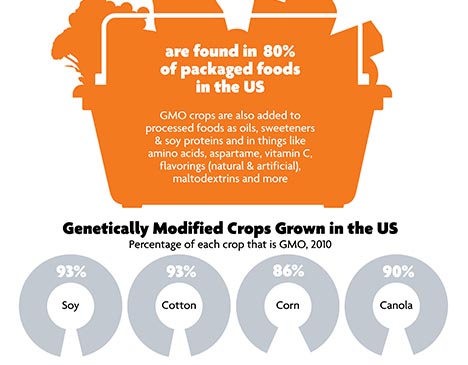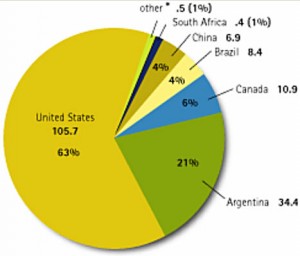GMO Labeling Bill Fails To Pass Senate

The popularity of GMOs (Genetically modified organisms, also know as genetically engineered organisms) has been growing in the food industry since their first entrance to the market in 1996. And with their growth in popularity, so grows their criticism.
Currently, the fact something is a GMO does not have to be labeled unless, according to FDA guidelines:
- If a bioengineered food is significantly different from its traditional counterpart such that the common or usual name no longer adequately describes the new food, the name must be changed to describe the difference.
- If an issue exists for the food or a constituent of the food regarding how the food is used or consequences of its use, a statement must be made on the label to describe the issue.
- If a bioengineered food has a significantly different nutritional property, its label must reflect the difference.
- If a new food includes an allergen that consumers would not expect to be present based on the name of the food, the presence of that allergen must be disclosed on the label.
Rather quickly, grassroots movements to get GMOs labeled have gained steam. In late March, the "Just Label It" campaign delivered over one million online signatures from members of all fifty states in support of labeling genetically engineered foods to the Food & Drug Administration (FDA). This petition and criticism by many other groups finally pushed for a vote on the labeling of GMOs by Congress.
On June 21st, a farming bill amendment proposed by Sen.Bernie Sanders (I-VT) and Sen. Barbara Boxer (D-CA) that would, "Permit States to require that any food, beverage, or other edible product offered for sale have a label on indicating that the food, beverage, or other edible product contains a genetically engineered ingredient" failed to pass by a vote of 26-73. The vote against the bill was actually one of the rare cases of bipartisanship in our Congress.
In general, those against GMOs believe that they could be detrimental to health and safety. The belief is that the modified foods may react in an unknown way with the human body and have long-term negative effects. They also fear that the genetic modified strains could cross with those that are unmodified, creating a potential ecological crisis. At the very least labeling should be caused to allow consumers to make educated choices.
Those in favor of allowing GMOs to remain in the marketplace without a label believe they help keep food costs low and are completely safe. They argue the fact that currently most scientific trials of GMOs have shown them to not be any less nutritious than regular foods and that no toxic effects of any in the marketplace have been observed. The thought is that the labeling of GMOs would create an unnecessarily bad reputation and hurt business for companies using what they believe has been shown to not be a dangerous product.
As of right now, GMOs of animal products are currently not on the marketplace. If that ever occurs, another vote on GMO labeling will likely be forced by the outcry from those against them.





